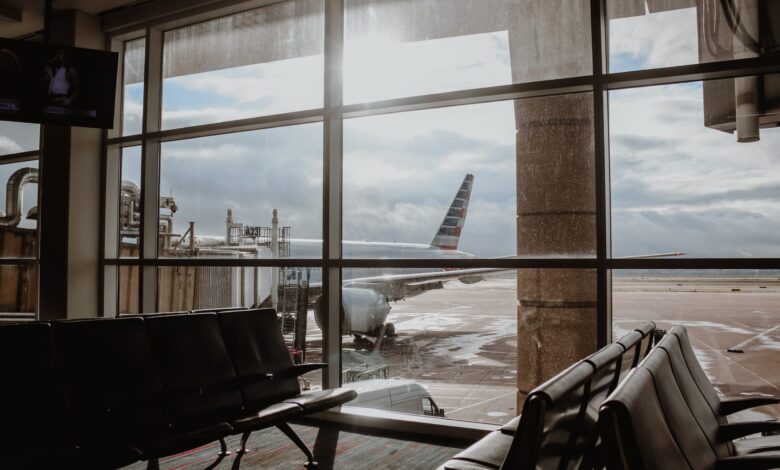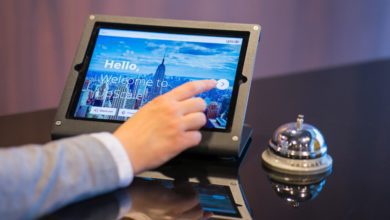Five top hospitality trends to expect in 2024
By Rachael Kiss, marketing and online manager at Alliance Online

Before 2024 begins, now is the perfect time for businesses to plan and adapt their operations to the ever-changing nature of what consumers want. As the hospitality industry knows, trends play a major role in what keeps you afloat; being the first one to stay on top of the trends is vital.
Thanks to TikTok and Pinterest, the hospitality industry has quickened its pace as to what is fashionable. Reports show that hotel room rates have risen by 54%, and since consumers now call the trends, the hospitality industry has to react and rise to these needs.
Amongst other trends, guests are opting to have a refocus on ‘the self’ in 2024, rather than the practicality of staying in a hotel just to lay their head; the entire holistic experience of the hotel is now what people are interested in.
1.Digitalised experience
Technology is increasing rapidly in the hospitality industry – from online bookings, the use of chatbots for further information, automated confirmations, mobile check-ins, a virtual concierge and a keyless entry to rooms – there are digitised options at every stage of the guest’s journey. Investing in tools that streamline and enhance the consumer experience is key.
Despite the initial investment in digitalisation, it can arguably be a solution in increasing operational efficiency and cost savings. Automation of routine tasks, such as check-ins and check-outs, can streamline processes and reduce the need for manual labour.
However, it’s important to maintain some sort of human touch to make sure personal connection isn’t lost completely.
2.Bleisure travelling
Bleisure travelling is part business, part leisure. With remote working on the rise, and with 81% of business travellers estimated to engage in bleisure travelling, we can expect this to be a key reason why many guests will come through the door in 2024.
To cater to this new ‘digital nomad’ audience, creating a dedicated working space is essential and will allow guests to be able to work during their stay. Providing entertainment is also a priority, as travellers will likely have an aspect of their trip subsidised by their employer and feel in some capacity that they are having an extended holiday.
As a result, they will be more inclined to spend on additional services. Make sure these are promoted within their stay and have front of house staff remind guests of the amenities you have to offer, whether this the spa, room service, valet parking or room upgrades.
Unsurprisingly, sustainability is one of the most important trends shaping the future of the hospitality industry – and for good reason. The single-use plastic ban was actioned in the UK in October 2023 and meant businesses can no longer serve certain single-use plastics, facing a fine if found to flout this ban.
With this being actioned, we can only assume that there will be an even stronger push on further defining legislation regarding single-use plastics. Refillable toiletries and disposable packaging using recycled materials are great alternatives and prove to be just as good.
4.A refocus on ‘the self’
There is a current trend where all things health, wellness and escapism is a top priority. We have noticed that people aren’t necessarily visiting hotels for the necessity of having somewhere to stay during their trip, but rather for a retreat. Staying in hotels has almost become a hobby.
With this in mind, the hospitality industry needs to tailor to the new wants of a guest. Since the pandemic, modern travellers are seeking self-indulgence and relaxation; a spa, sauna, swimming pool, room service or extended laundry services all allow the consumer to fully relax during their stay. This form of self-indulgence is usually associated with luxury hotels that have a premium price tag, but more often that not, in-room amenities like a complimentary dressing robe or in-room entertainment allow guests to seek a break from everyday stresses.
5.Hyperlocal experiences
Long are the days where you’d want to be seen as a tourist! Travellers are increasingly seeking authentic, hyperlocal experiences so that they can immerse themselves in the local culture, cuisine, and lifestyle. This rising trend aligns with the growing interest in cultural immersion and a desire to connect with the community during travel.
To react to this trend, hotels can build partnerships with local businesses, artisans and cultural organisations who are fostering a sense of community, and offer these experiences to guests. Plus, it’s always helpful to shine a light on smaller businesses in your local community.









